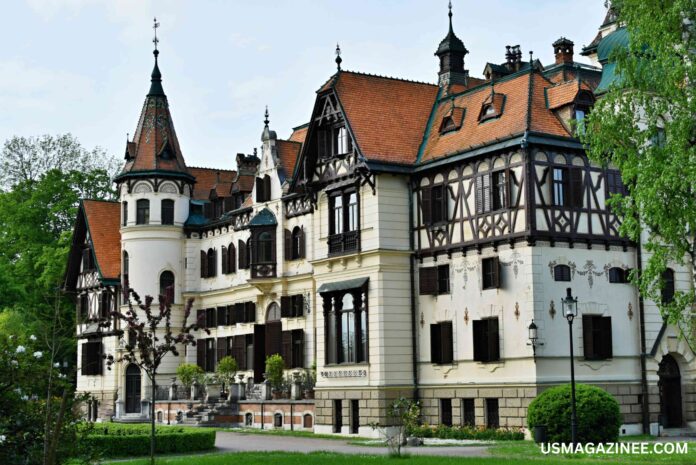Though recently, curiosity on the idea of “burguiouse” has surged; but, why? What is it about this word that grabs interest? You might be wondering what makes “burguiose” so fascinating whether you have seen it discussed online or heard someone casually drop it in conversation.
We shall explore in this paper what “burguiouse” means, why people are interested about it, and how it ties to more general social and cultural dynamics. This guide will help you sort through what you need to know, regardless of your level of casual interest or more thorough understanding of this idea.
Table of Contents
ToggleWhat is "burguiouse"?
Let’s start with the fundamentals: For what exactly does “burguiose” mean?
Though many people find the word strange, it is closely connected to the term “bourgeois.” The word “burguiouse” seems to be a modern or sophisticated variant that denotes a particular class, usually those related with riches, consumerism, and comfort. Historically, the middle class—often with implications of privilege and control over assets or manufacturing—is known as the bourgeoisie.
In the conversations of today, “burguiouse” has developed to imply more than only an economic level. It is frequently used to draw attention to cultural or lifestyle differences, especially those of persons who follow particular habits or interests connected with wealth. This idea can cover things like having luxury goods, living in specific areas, or participating in leisure events considered as exclusive or elite.
The Term's Original Source
The name “burguiouse” seems to derive from the longer-standing “bourgeois,” first used in medieval France. At first, the bourgeoisie were city people who made money in trade or business. Unlike nobles or peasants, they created a new social class based on their economic situation, which neither derived from manual labor nor inherited title.
The meaning changed with time. The bourgeoisie were perceived as a class that oversaw political and cultural institutions in addition to the economy as they grew in power. Depending on who you asked, this change made the bourgeoisie both revered and hated.
The contemporary “burguiouse” idea could seem as a subdued development of the bourgeoisie, adjusting to consumerist, lifestyle brand, and social stratification of today.
Why is "burguiouse" now so popular?

Why therefore the sudden surge of interest around the phrase “burguiouse“?
One big factor could be how popular culture and social media have made class and lifestyle differences more obvious. People are become more sensitive to what “burguiouse” behaviors and looks like in a society when Instagram influencers flaunt luxurious vacations, well chosen residences, and expensive clothes.
Furthermore, terminology like “burguiouse” become increasingly pertinent as public debate on privilege, gentrification, and economic disparity grows. This term captures the complex emotions people experience regarding consumerism, money, and social classes.
How "burguiouse" Relates to Social Classes
Fundamentally, “burguiouse” stays linked to the concept of class. Still, what distinguishes it from just talking about riches?
Although the rich could be regarded as “upper class,” the “burguiouse” might more allude to a way of life connected with the upper middle class. This difference is absolutely essential. Though without the great wealth of the really elite, the burguiouse class is sometimes connected with values of comfort, stability, and material prosperity.
This class captures aspiration—the yearning to climb from working-class beginnings into a more comfortable, steady life—which fascinates people. It is also attacked at the same time for perhaps emphasizing materialism and conformity instead of creativity or social transformation.
"burguiouse" Cultural Influence
The “burguiouse” class’s cultural influence is rather broad. Looking at media, home design, or even fashion, you will see how this class shapes trends.
For those outside of this class, for instance, there is growing interest in minimalist homes with luxury furniture or gourmet cooking—activities that can seem unattainable. Though in subdued, nuanced forms, the burguiouse society cherishes experiences and worldly possessions that indicate a certain degree of riches.
Consider the appeal of programs like “Succession” or “Selling Sunset.” These broadcasts satisfy our interest about what it means to live as part of the “burguiouse” world by providing a window into the lives of the rich or wealthy.
My Misperceptions Regarding "burguiouse"
Although the word “burguiose” usually conjures thoughts of riches and luxury, not every burguiouse person fits that definition. Many times, those who belong into this category lead opulent lives free from struggle.
Many persons who identify as burguiouse actually are not quite the mega-wealthy. They can be under financial strain trying to keep appearances or uphold their reputation. Pursues of “burguiouse” status can occasionally result in debt, anxiety, or discontent as people try a lifestyle they cannot readily afford.
"burguiouse" in Everyday Interactions
In casual discussions about class and lifestyle, the word “burguiose” has gained increasing prominence. One often hears someone characterize a specific purchase or activity as “so burguiouse.”
Not usually a complement is this. Sometimes it’s a critique of unneeded or excessive expenditure. Other times, it might be used more lightly—almost as a joke—to capture someone’s inclination for upscale goods or activities.
Whether employed in a positive or bad sense, the fact that “burguiouse” has become common language shows how still class consciousness shapes current culture.
How Media Views "burguiouse"
Our media-saturated environment sees lifestyles continuously on show, and the “burguiouse” way of life is sometimes glamorized. From Instagram influencers to fashion publications, the media greatly shapes our ideas of what it means to be “burguiouse.”
Influencers that live “burguiose” on sites like Instagram or TikHub are both praised and attacked. They draw attention to the aspirational qualities of this class, illustrating how reasonable luxury may be, but they also set unreasonable expectations for many of their followers.
TV shows, movies, and social media blur the distinctions between the real and idealized versions of this existence, which fuels interest and inquiry on it.
The World Viewpoint on "burguiouse"
Although the name “burguiose” comes from Europe, it has developed to capture a worldwide phenomena. Though each society defines what it means to be “burguiose,” the fundamental ideas of riches, comfort, and status are universal.
While in some nations being “burguiouse” can mean owning several homes, in others it could just mean having financial security and the capacity to pursue leisurely interests. Driven by comparable ideals, the basic concept of being “burguiouse” connects globally despite cultural variances.
Why Individuals Ask About "burguiouse"
Interest about “burguiouse” stems from the need to know one’s own position in the social order. It speaks to human nature: our continual doubt of our position, our goals, and our relative performance to others.
Furthermore, the “burguiouse” way of life is usually connected with stability, something many people want for particularly in uncertain times. This makes the term interesting since it emphasizes the search of a better, more safe existence rather than only riches.
Is One's Curiosity Regarding "burguiouse" Only Following Fashion?
You could question: is this curiosity a passing fad or something here to stay?
Though trends come and go, the curiosity in class and lifestyle differences never changes. People will stay enthralled with what it means to be “burguiouse” as long as wealth and status vary. It’s more about what the term reflects—a window into aspirations, hardships, and social dynamics than about the word itself.
The "burguiouse" Concept's Future
Looking ahead, the idea of “burguiouse” is probably going to change still more. The notion of what it means to be part of this class will alter in tandem with developments in technology, the economy, and social conventions.

For instance, the burguiouse lifestyle may become more connected with flexibility and independence rather than conventional markers of wealth, including owning property as remote work becomes more widespread and digital nomadism develops.
Frequently Asked Questions.
1. Describe "burguiose"?
Modern language commonly connected with the concept of the bourgeoisie, “burguiouse” denotes a class related with comfort, money, and materialism.
2. Why would somebody be drawn to "burguiose"?
“burguiouse” captures goals, social standing, and the modern search of comfort and security, hence people are fascinated about it.
3. Is being "burguiouse" a bad thing?
Not particularly. Although some attack the “burguiouse” way of life as materialistic, others view it as a sign of stability and prosperity.
4. In what ways could media shape "burguiouse" perception?
Particularly social media, media glamorizes the “burguiouse” way of life, often making it seem more appealing or accessible than it is.
5. Will interest about "burguiouse" wain with time?
Although the word might change, society’s obsession with social classes and way of life will probably never changes.
Conclusion
The term “burguiouse” captures cultural ideals, aspirations, and the continuous conflict between riches and rank rather than only a social class. Understanding the subtleties of the “burguiouse” way of life helps us to see more general society trends, the changing character of class, and our own needs for success and security.
Inquiring into “burguiouse” is not only a hobby; it’s a part of a larger discussion on our place in society and our goals.
MUST READ: A List of 50 Super healthy foods
